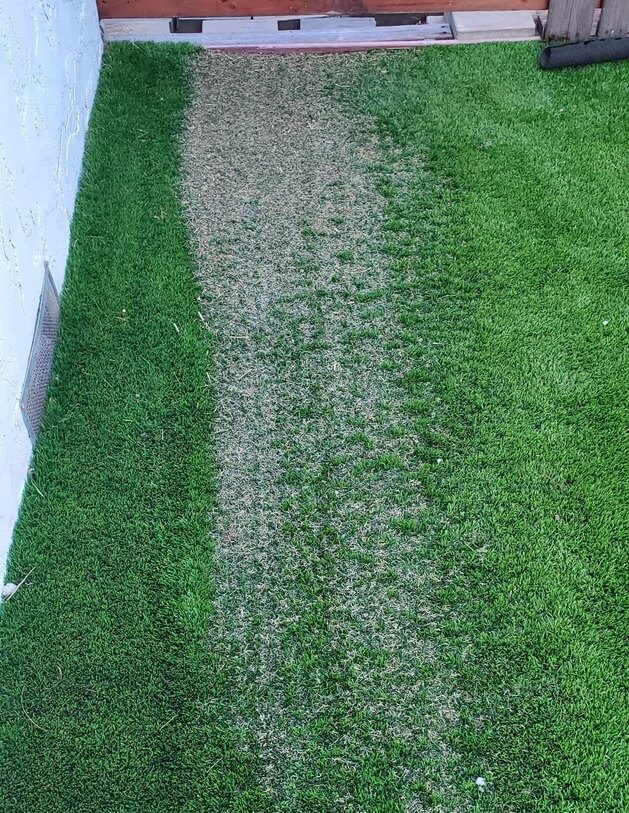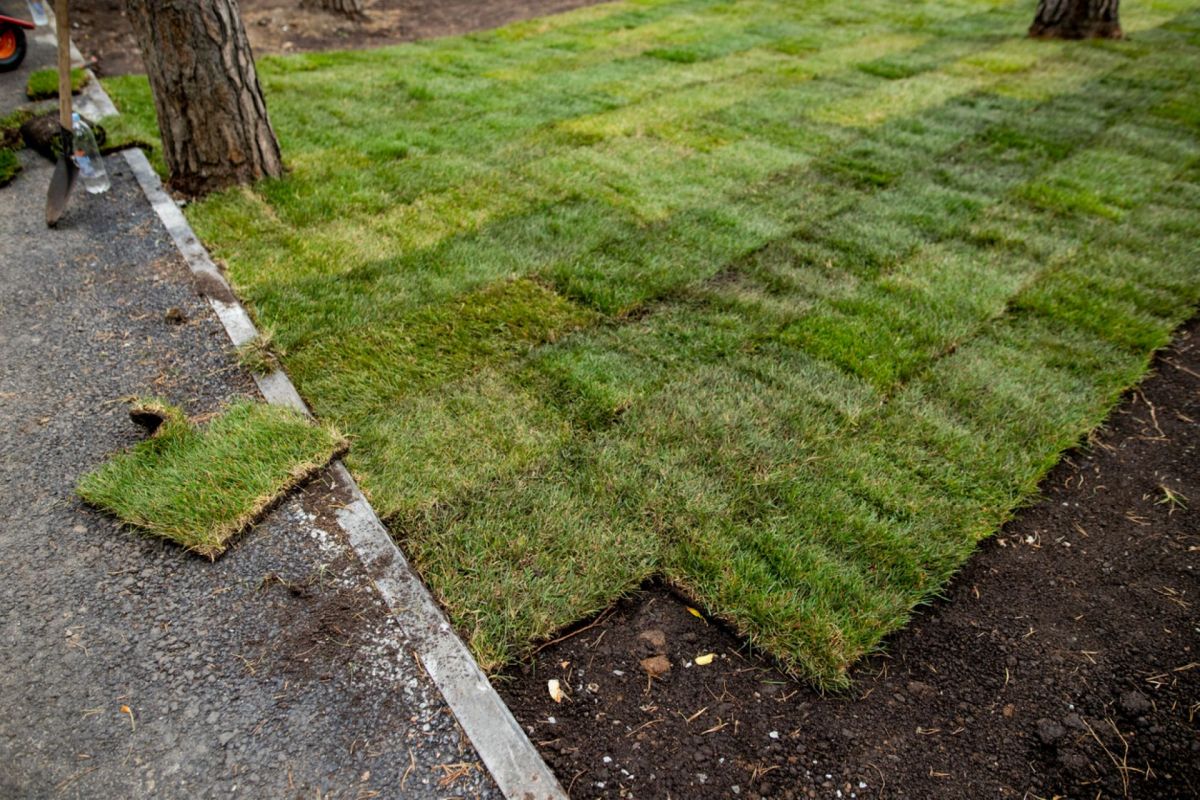On the bingo card for hazards of artificial turf, this may be a rarity.
A Reddit user in the San Francisco Bay Area shared a photo of verdant green turf with a large withered strip.
"We got artificial grass so that the backyard wouldn't look dead," they wrote. "The grass melted and permanently looks dead."

"I never even imagined artificial grass could melt," one commenter wrote.
Another replied, "Well, it's plastic."
Artificial turf gets super hot, but it boggles the mind that the product could melt. Still, the heat hazards are notorious.
One Redditor documented their fake grass reaching 190.8 degrees Fahrenheit. That's on one end of a spectrum that starts with tall grass prairies, which can remain 14 degrees cooler than the ambient temperature, a TikToker showed.
Plastic-based turf absorbs so much heat from the sun that it creates the heat island effect, slowly releasing the heat back into the air, making it hotter than it would be otherwise.
Plastic, made from oil, is a source of dirty energy, and every step in the life cycle of artificial turf is laden with environmental costs. Even once it's been installed, it can create water usage problems that it was meant to solve. And, of course, just because it's recyclable doesn't mean it gets recycled.
The material can also lower property values, but its negative health effects are most alarming.
Per- and polyfluoroalkyl substances, or PFAS, are one of the chemicals in synthetic grass. They are known as forever chemicals because they don't break down in the environment and stay in the human body for years.
PFAS and other components that make up the textile can also leach into surface water, causing widespread pollution of marine environments.
"Environmentalists, scientists and researchers have expressed growing concern that the chemicals in the turf could possibly be linked to some kinds of cancer and other health problems," the Philadelphia Inquirer reported.
At least this Redditor's mistake prevented another one from being made.
"We were thinking of installing artificial grass in Arizona," one user said. "If it can melt in CA, it will surely melt here. Thanks!"
Join our free newsletter for easy tips to save more, waste less, and help yourself while helping the planet.









